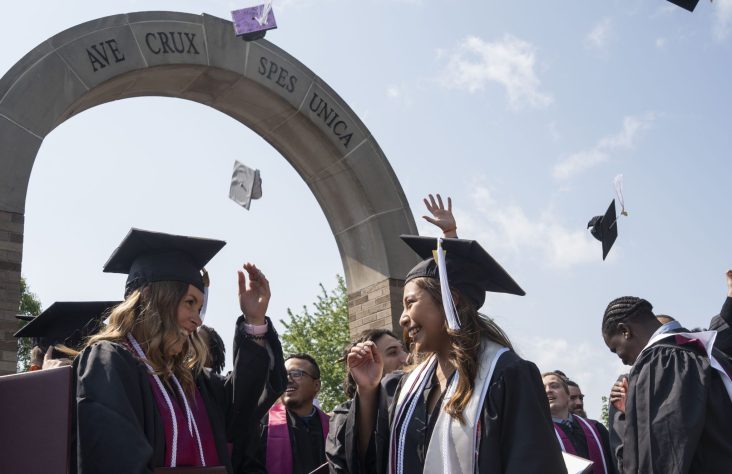February 29, 2012 // Local
ICC update
Assisting undocumented college students gain in-state tuition
INDIANAPOLIS — Promising young, college students have come to Sen. Jean Leising (R-Oldenburg) with a problem. The problem: a new state law has brought these bright students’ pursuits of a college degree to a screeching halt.
Victoria, who recently brought this to Leising’s attention, is one example. Victoria, a student with junior status at Indiana University and a 4.0 grade point average in her major of international studies had her college education abruptly cut short this fall. Why? She was required to pay out-of-state tuition because of a new law effective this year, which prohibits undocumented students who reside in Indiana from getting in-state tuition.
Tuition for Victoria, now at almost three times what she was paying last year, made it impossible for her to return last fall. Victoria is waitressing now, and unsure when or if she’ll be able to finish her college degree.
Leising would like to change this especially for college students who were already attending college when the law changed.
Leising is not alone. The Indiana Catholic Conference, the official public policy arm of the Catholic Church in Indiana, also supports the effort.
“We are supportive of efforts to help undocumented college students complete their college education,” said Glenn Tebbe, ICC executive director. “These college students are working hard to provide for themselves and should be able to do so. They and their families are paying sales, property and income taxes. In that way, they are supporting the state and its institutions and programs.”
Leising offered an amendment to House Bill 1326, a bill on various education matters, to correct the problem. Her amendment would grandfather college students like Victoria who were already enrolled in college when the law changed. The amendment does not help kids that are currently in grades K-12.
Last year, the Indiana General Assembly passed a law to prohibit undocumented immigrants from receiving in-state tuition. It stipulated that students must be lawfully present to qualify for in-state tuition rates. The Indiana Catholic Conference opposed the legislation.
“Until last year, high school graduates entering college could get in-state tuition even if they did not have legal status,” said Leising. “Student’s like Victoria are funding 100 percent of the tuition by their hard work and hard work of their family. Undocumented immigrants are not able to get financial assistance for college.”
“What I’m doing is trying to help students like Victoria and many like her who were already enrolled in college when the law was passed and are not able to complete their college education because it is cost prohibitive to do so,” said Leising.
“The young women I have talked to were brought to this country when they were in preschool,” said Leising. “They have attended school from grades K-12 and are as Americanized as any other American child would be. These kids would be misplaced if they went back to their home country.”
“In a sense we are throwing a road block in front of them because they can’t afford the out-of-state tuition. And especially they can’t because they do not qualify for any kind of state student assistance. I do not believe that they should qualify for state student assistance, I’m not advocating that, but I just want them to be able to complete their college education so that hopefully they can continue to pursue their legal status,” she said.
“These kids all want to be legal,” said Leising. “One young person came to see me with her immigration attorney. The immigration attorney told me that there are young adults who are in their early 20s that might have to wait up to 20 years to achieve legal status because they have aged out of the system.”
According to the immigration attorney, Leising said that when a child ages out of the system that means it basically took the system too long to grant them legal status, so the process starts all over again and the person must apply in a different category.
“These kids are in the prime of their life as far as working and career making, yet they potentially will not have access to a legal status, or may have to wait 20 years to get it,” Leising said.
Currently, 12 states have laws allowing undocumented students who meet specific requirements to receive in-state tuition according to an October 2011 report issued by National Conference of State Legislatures (NCSL). California and Texas were the first to enact laws in 2001. Utah, Washington, Oklahoma, New York, Kansas and Illinois also have similar laws allowing undocumented to pay in-state tuition.
Four states including Indiana prohibit in-state tuition for undocumented students. Arizona passed its in-states prohibition in 2006. Colorado and Georgia passed a similar law in 2008.
The best news. Delivered to your inbox.
Subscribe to our mailing list today.





